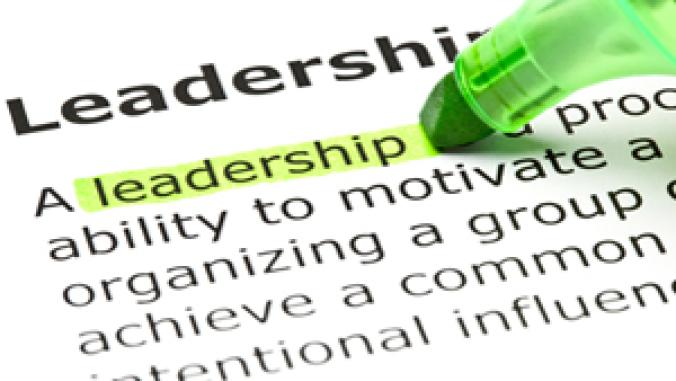Leading US Companies Descend on DC to Urge Senate Action on Climate Bill
<p>Representatives from more than 150 major U.S. firms spanning consumer goods, utility and technology sectors and more went to Capitol Hill this week in the hopes of spurring the Senate to pass comprehensive energy and climate legislation.</p>

Courtesy of We Can Lead
Representatives from more than 150 major U.S. firms spanning consumer goods, utility and technology sectors and more went to Capitol Hill this week in the hopes of spurring the Senate to pass comprehensive energy and climate legislation.
The effort was coordinated under the banner of the We Can Lead coalition of businesses and two organizations that work with them -- Clean Economy Network Inc. and Ceres, the largest group of investors and environmental and public interest organizations in North America.
Members of Ceres' Business for Innovative Climate & Energy Policy (BICEP) coalition also turned out in force in the nation's capital.
"It's very exciting to see a very diverse group of business leaders and companies coming together in support of climate and energy legislation," Dan Probst, chairman of energy and sustainability services for Jones Lang LaSalle, told GreenerBuildings.com today. The commercial real estate services giant is the only company in its sector to be a member of BICEP.
"We've been having some good discussions with key leaders," Probst said.
 The contingent of more than 200 arrived in Washington, D.C., on Tuesday. They dined with Interior Secretary Ken Salazar that evening and this morning met with Energy Secretary Steven Chu and Commerce Secretary Gary Locke, said Probst. Meetings with senators filled the today's afternoon calendar.
The contingent of more than 200 arrived in Washington, D.C., on Tuesday. They dined with Interior Secretary Ken Salazar that evening and this morning met with Energy Secretary Steven Chu and Commerce Secretary Gary Locke, said Probst. Meetings with senators filled the today's afternoon calendar.
The overtures this week are the latest in a series of moves by top American companies to secure effective federal climate and energy policy.
In June, leaders for a number of firms, JLL among them, also journeyed to the district to press members of the House on the issue. Last month, more than two dozen companies sent a letter to President Barack Obama and the Senate to call for them to:
"enact comprehensive legislation to create new energy jobs, cut carbon pollution and make us more energy independent.
"Putting a price on carbon will drive investment into cost saving, energy saving technologies and will create the next wave of jobs in the new energy economy. For the United States to compete and lead, you must act. It's time for the Administration and the United States Senate to embrace this economic opportunity so that our workers and entrepreneurs can lead the way.
"The House of Representatives voted to create 1.7 million new energy jobs, make us more energy independent and put a price on carbon. And according to the independent Congressional Budget Office -- all for less than the cost of a postage stamp per family per day.
"Now it's time for the United States Senate to act."
In a separate but related campaign this week, 28 big companies and environmental groups took out full-page ads in the New York Times and Washington Post to urge the Senate to "pass clean energy legislation with a cap on greenhouse gas emissions this year."
{related_content}Legislation being considered includes provisions for a deep cut in carbon emissions by 2050, carbon cap and trade, increased investment in alternative, such as wind and solar and increased investment in retrofits. Those provisions hold the promise of creating jobs, stimulating the clean energy economy, lowering energy costs and reducing the country's dependence on foreign oil Probst and other proponents note. The expected benefits also speak to many of the business aims of the companies supporting legislative action.
"We're a real estate services company, so for us it's all about buildings and making buildings more energy efficient," said Probst, whose company has been steadily expanding its sustainability services and projects in its domestic and international portfolios.
For building owners, according Probst, benefits of climate and energy legislation would include:
• A better framework for financial incentives, which could prevent the now-you-have-them, now-you-don't scenarios that have prevailed over the years.
• More consistent regulations across the 50 states.
Building operations in the United States account for about 39 percent of the energy consumed, 72 percent of the electricity used and 38 percent of all CO2 emissions, according to the U.S. Green Building Council.
"Buildings are a big part of the problem," Probst acknowledged, "but buildings are also a big opportunity for change." In working with its clients, he said, JLL has found that "building owners can realize a 20-, 30- , 40-percent improvement in energy efficiency by making certain improvements or upgrades to the property.
Asked what he viewed as the biggest barrier to adoption of effective legislation, Probst replied: "Education. People have heard news stories and from other sources -- about carbon taxes, carbon cap and trade -- and have translated that into high taxes, higher costs for energy and jobs lost overseas, when in fact this is going reduce people's energy costs and create jobs."
Adopting legislation could also help the country regain lost ground in manufacturing, he said. Right now, "we losing the technology race -- in wind and solar -- to China, but we can be making that stuff here with the right support," said Probst.
Scrutiny of the U.S. legislative debate over climate policy is expected to increase as the date approaches for the United Nation's global climate agreement negotiations, scheduled to begin December 7 in Copenhagen. And as Politico's chief political correspondent Mike Allen noted this week, the U.S. Senate so far looks unlikely to pass a climate bill before the treaty talks begin.
"It'd be great if we showed up there with more clarity on our position here in the U.S.," Probst said.
Images courtesy of WeCanLead.org.





